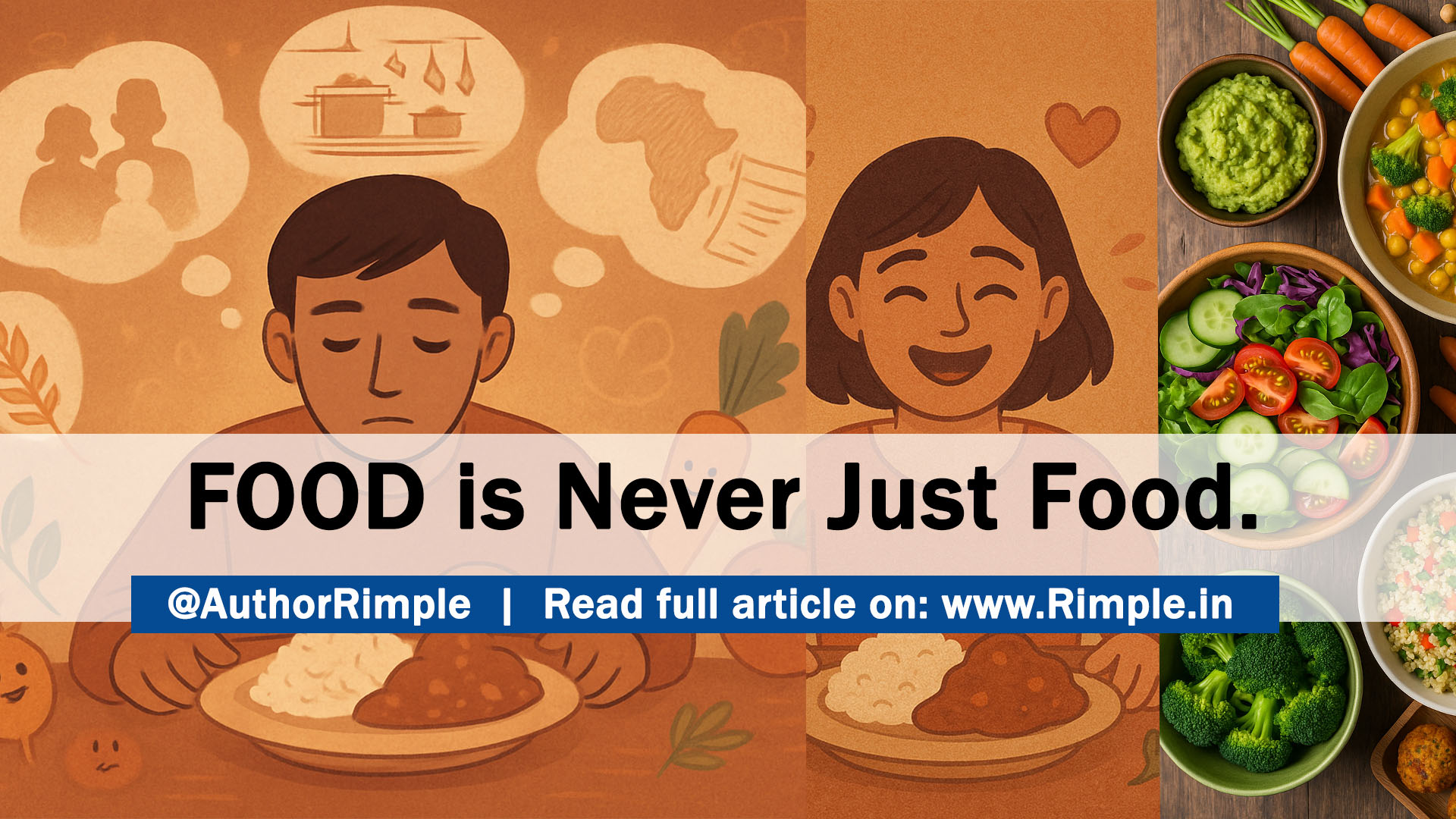Food is more than a mere necessity—it is a sacred thread that weaves love, care, and warmth into the fabric of our lives. It is a silent language of affection, a bridge that connects hearts, and a pathway to something divine. From the moment we are born, food carries with it the essence of those who prepare it, shaping our emotions and memories in ways we often overlook. Let’s embark on a beautiful journey to rediscover the soul of food.
The First Taste of Love
Imagine a tiny baby, gazing into its mother’s eyes as it is cradled and fed. In those tender moments, food is not just nourishment—it is love, care, and a deep connection. The warmth of the mother’s embrace, the softness of her voice, and the gentle rhythm of her heartbeat become intertwined with every bite. This is where the story of food begins—a story of trust and belonging, etched into the soul from the very first day.
The Warmth of Childhood
As we grow, food becomes a canvas of our mother’s love. Those early years are filled with the aroma of home-cooked meals, the care poured into packing tiffin boxes for school, and the comfort of a warm meal after a long day. Picture a mother kneading dough with a smile, her hands gently shaping rotis as she hums a lullaby. That food carries her tenderness, her gentle care, and the safety of home. It’s like a warm hug you can taste, a memory that lingers long after the plate is empty.
The Loss and Longing
But as life moves forward, that love can feel distant. Living in a hostel, you might encounter bland, indifferent food—meals that lack the soul of care, leaving you yearning for the flavors of home. Restaurant food, though delicious, often feels cold, a transaction rather than a gift. It’s like eating in a crowded room where no one knows your name—a stark contrast to the warmth you once knew. This shift teaches us that food is not just about taste; it’s about the hands that prepare it and the heart behind them.
The Fragrance of Freedom
When you step into the quiet of your own kitchen, food transforms into a mark of independence. Cooking your first meal alone—perhaps a simple dal or a fragrant curry—fills the air with the scent of freedom. It’s like planting a seed in your own garden, watching it grow into a meal that reflects your spirit. This is a beautiful chapter, where food becomes a celebration of self, a fragrant reminder that you can nurture yourself with love.
The Return of Love
Yet, on weekends when you return home, the food cooked by your mom, dad, or siblings wraps you in a familiar embrace. It’s not just the spices that dance on your tongue—it’s the laughter shared while chopping vegetables, the care in every stir of the pot, and the love that seasons the dish. It’s like a reunion with an old friend, a blend of nostalgia and joy that warms your heart. This is food as a bridge, reconnecting you to the roots of your soul.
The Romance of Partnership
When you find a life partner, food takes on a new melody. A wife or husband cooking for you becomes a silent language of love—a romantic dance of affection. Imagine a candlelit dinner where the clink of plates is accompanied by shared smiles, or a quiet morning with freshly made pancakes, each bite whispering care. It’s a sacred exchange, a time where food becomes a canvas for affection, painting your days with warmth and togetherness.
The Silent Language of Care
Even when miles apart, food remains a tender thread of love. When a child or spouse is away—perhaps at college, work, or traveling—parents or partners show their care through a simple, repeated question:
“Did you eat your food?”
“Are you eating healthy?”
“Did you have lunch on time?”
These are not mere words; they are a melody of concern, a silent language of love that transcends distance. A mother’s voice, gently urging her child to eat on time, carries the same warmth as the meals she once packed. A spouse’s reminder to bring food to the office is like a soft whisper of affection, ensuring you’re cared for even in their absence. It’s as if food becomes a vessel for their heart, reaching you across cities and time zones, wrapping you in their love.
Those who don’t have anyone to ask these questions, ask them, how they crave for such things. If not, they don’t know what it means to have someone who loves and cares in simplest ways. Love is not always about grand gestures. In daily lives, it is communicated in different ways, and these questions on food are one of the many silent language of love and care. There are many simple questions and statements in daily life, that is nothing but a silent language of love, not grand, but most impactful, unspoken love.
The Wisdom of Ancient Scriptures
Ancient Hindu scriptures offer a profound insight into this sacred dance of food. They teach that what you eat and who cooks it matters deeply. The emotions of the cook are said to flow into the food, like water seeping into the earth. When someone cooks with love and positivity, that goodness fills every morsel. But if the cook harbors anger, jealousy, or dark intentions—perhaps even planning to steal—these emotions are woven into the meal. The one who eats it doesn’t just consume food; they absorb those feelings too.
There’s a timeless story from Hindu lore that illustrates this truth. Once, a saint known for his purity visited a village. Hungry and weary, he accepted food from a household. Unbeknownst to him, the cook was a thief, his mind consumed with plans to steal as he prepared the meal. After eating, the saint—who had never stolen in his life—was overcome by an urge he couldn’t explain. In a moment of confusion, he took a silver spoon from the house. Stunned by his actions, he asked host who cooked the food. The host said, “my wife is ill today so our neighbor cooked the food”. Saint confronted neighbor if she had ever stolen a silverware. She accepted she had a habit of stealing. The food had carried the cook’s emotions into his soul. This tale reminds us that food is a vessel of energy, and the cook’s heart shapes its essence.
Another story speaks of King Harishchandra, a man of unwavering truth. Once, he ate food offered by a deceitful host. Though the meal was rich, it clouded his judgment temporarily, teaching him the power of the cook’s intent. These stories urge us to choose our food and its makers with care, for they influence our spirit.
Food as a Sacred Bridge
Food is never just food—it’s a sacred experience, a bridge between people and something beyond. It connects us to our ancestors, to the divine, and to the unseen realms of life. This is why vegetarianism is often celebrated in Hindu tradition, seen as a path to purity and compassion, aligning our bodies and souls with higher vibrations. Every meal becomes a prayer, a grace that reminds us food is life itself.
A Call to the Heart
Next time you sit down to eat, pause and feel the love in your meal. Is it the care of a mother’s hands, the freedom of your own kitchen, or the affection of a partner? Reflect on who prepared it and with what heart. Let this awareness transform your eating habits, turning each bite into a moment of gratitude and connection. Food is a gift, a constant reminder that life is nourished by love, care, and the divine spark within us all. Embrace it with your heart and soul, and let it guide you to a deeper, more beautiful way of living.
Hope this article changes the way you look at food. It is more that just food 😀
Also Read:





